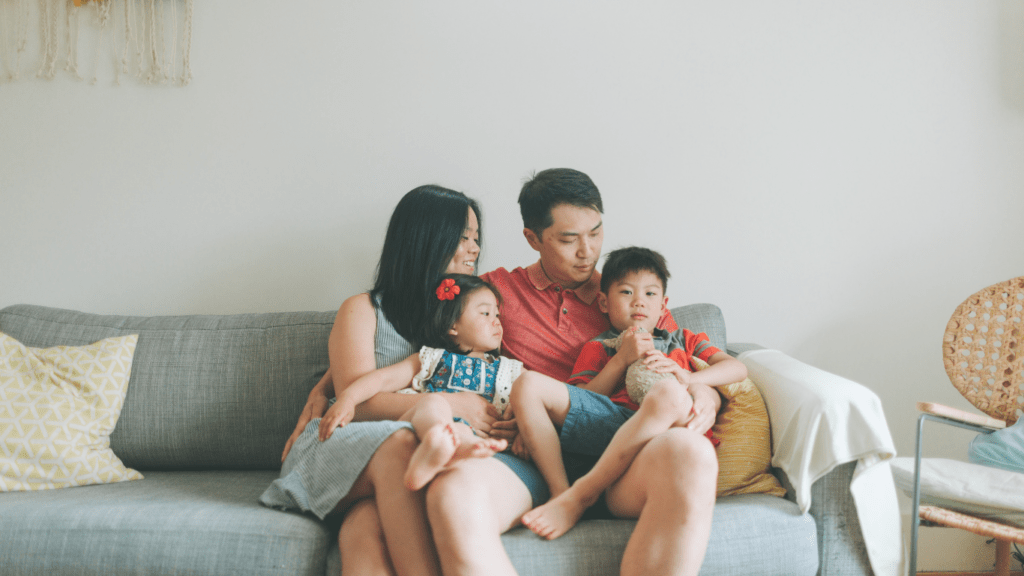The Evolution Of Parenting Styles
Parenting styles have evolved significantly over the decades. Traditional methods often leaned on authoritative approaches, where parents imposed firm rules and expectations. This method aimed to instill discipline and respect for authority.
In contrast, the 1960s and 1970s saw a shift towards permissive parenting, characterized by lenience and a hands-off approach. Parents during this era wanted to foster creativity and independence in their children, often at the expense of structure and boundaries.
The 1980s and 1990s introduced authoritative parenting, a balanced approach combining firm rules with emotional responsiveness. This style showed improved outcomes in children’s social skills and academic performance. Parenting literature from these decades emphasized the importance of nurturing yet structured environments.
In more recent years, parenting styles have diversified even further. Helicopter parenting became prominent in the early 2000s, where parents took an over-involved approach to their children’s lives, often micromanaging their daily activities and decisions. This style aimed to ensure safety and success but faced criticism for stifling autonomy.
Attachment parenting, advocating for strong emotional bonds through practices like co-sleeping and babywearing, gained traction in the 2010s. This method emphasizes the importance of secure attachment and emotional availability, believing it lays a foundation for healthy psychological development.
Parallelly, free-range parenting emerged as a counter-trend, advocating for less supervision to encourage independence and problem-solving skills. Free-range parents believe that children should explore and learn from their mistakes in a less-controlled setting.
Today’s parenting styles are a blend of these past trends, allowing parents to choose methods that suit their values and their children’s needs. The evolution of parenting reflects broader societal changes, showing how adaptable and varied parenting approaches have become.
Popular Parenting Trends
Parents today embrace various trends that adapt to the ever-evolving demands of modern life. Below, I’ve outlined some popular approaches.
Positive Parenting
Positive parenting focuses on fostering a nurturing and encouraging environment. This trend emphasizes praising children’s efforts rather than their outcomes, which helps build self-esteem and resilience. By expressing empathy and maintaining open communication, parents create strong, trusting relationships. Positive discipline techniques involve setting clear boundaries without resorting to punitive measures. Dr. Jane Nelsen, a renowned psychologist, advocates for using mutual respect and problem-solving to guide children’s behavior.
Gentle Parenting
Gentle parenting emphasizes:
- empathy
- respect
- understanding
This approach seeks to meet children’s emotional and physical needs through loving and responsive interactions. Gentle parents prioritize listening to their children and validating their feelings. They use positive reinforcement and model appropriate behavior instead of enforcing strict rules or punishments. Proponents argue that this method helps children develop emotional intelligence and self-regulation skills, leading to healthier relationships in the future.
Screen Time Management
- Screen time management has become crucial as digital devices become integral to daily life.
- Parents now strive to balance the benefits of technology with the risks of overexposure.
- Strategies include setting daily limits on screen usage and encouraging alternative activities like outdoor play or reading.
- Implementing device-free zones within the home, such as during meals, helps reinforce family bonding and promotes healthier habits.
- The American Academy of Pediatrics recommends creating a family media plan to set clear guidelines and ensure technology doesn’t interfere with sleep, physical activity, or other essential activities.
These trends illustrate the diverse and adaptive nature of modern parenting, showing how parents integrate various strategies to respond to contemporary challenges.
Trends That Are Losing Popularity

In recent years, several parenting trends have seen a decline. These practices, once deemed effective, are now being replaced by more progressive approaches.
Helicopter Parenting
Helicopter parenting involves parents being overly involved in their children’s lives. This style features constant monitoring of academics, social activities, and every aspect of the child’s development. Lately, this approach has faced criticism for stifling children’s independence and problem-solving skills. Current understanding suggests children benefit more from balanced involvement, where they are allowed to learn from their mistakes and build resilience. Studies from the Journal of Child and Family Studies indicate that lower levels of helicopter parenting correlate with higher psychological well-being in children.
Tiger Parenting
Tiger parenting, popularized by Amy Chua’s “Battle Hymn of the Tiger Mother,” emphasizes strict discipline and high expectations. Parents adopting this style enforce rigorous academic standards and extracurricular commitments to ensure their children excel. However, this method is losing favor as it often leads to high stress and burnout in children. Research from the American Psychological Association shows that children under intense pressure tend to experience anxiety, depression, and lower self-esteem. Modern parenting trends are shifting towards more balanced approaches that prioritize children’s mental health alongside their achievements.
Expert Opinions On Emerging Trends
Experts weigh in on the current parenting trends, providing valuable insights drawn from their extensive experience and research. Their opinions help decode what’s working and what’s not in today’s dynamic parenting landscape.
Psychologists’ Perspective
Psychologists focus on fostering emotional intelligence in children. They advocate for Positive Parenting, which emphasizes open communication and praise to build self-esteem. Studies by the American Psychological Association show that children who receive consistent emotional support exhibit better social skills and academic performance. Dr. Laura Markham, a clinical psychologist, points out that empathy and respect are crucial in child development. She highlights Gentle Parenting for its approach to meeting children’s emotional needs without punitive measures. Experts caution against overprotective styles like helicopter parenting, which can hinder independence and resilience.
Pediatricians’ Recommendations
Pediatricians emphasize balanced parenting practices to promote physical and mental health in children. They recommend screen time limits, advising no more than two hours per day for school-age children as per the American Academy of Pediatrics. Dr. Ben Hoffman, a pediatrician, notes that excessive screen time can lead to attention issues and sleep disturbances. For this reason, Screen Time Management is crucial in modern parenting. Pediatricians also support free-range parenting, advocating for outdoor play and exploration to enhance physical development and independence. They warn against strict, high-pressure styles like tiger parenting due to the associated stress and potential mental health issues in children.
Impact Of Social Media On Parenting Trends
Social media significantly influences parenting trends, reshaping practices globally. Platforms like Instagram, Facebook, and TikTok offer a vast array of parenting advice, from feeding tips to discipline techniques. These resources provide parents with access to diverse perspectives and strategies, fostering a sense of community and support.
Social media also drives the popularity of trends by showcasing parenting influencers and their methods. Influencers often set parenting standards, sharing curated moments that emphasize specific styles such as Gentle Parenting or Positive Discipline. Their content reaches millions, rapidly spreading new ideas and approaches.
There is, however, a downside. The constant influx of information can overwhelm parents, making it challenging to discern reliable advice from misinformation. Social media often presents idealized versions of parenting lives, leading to unrealistic expectations and added pressure to conform to these portrayals.
Parents frequently turn to Facebook groups and forums for peer support and advice. These communities offer insights into everyday parenting challenges, creating spaces for shared learning and problem-solving. Parents find comfort and validation in these groups, which helps in navigating complex situations.
Despite the benefits, privacy concerns arise. Sharing children’s images and details on social networks exposes families to potential risks, including data privacy issues and unauthorized use of personal information. Parents increasingly seek to balance sharing and protecting their children’s digital presence.
Social media influences shopping habits, as well. Brands leverage these platforms to market parenting products, from educational toys to organic clothing. Influencer endorsements and sponsored posts can drive consumer behavior, sometimes overshadowing personal research and preference.
The emergence of parenting apps connected to social media feeds exemplifies another trend. These apps offer tailored advice, tracking tools, and community features, integrating social media dynamics to enhance parenting experiences. They bring convenience but also pose risks related to data security and screen time.
Relying on social media, parents find a blend of support and challenge. The key lies in discerning reliable information, setting realistic expectations, and maintaining a balance between online and offline parenting experiences.



 Jameslee Silverayees – Founder Jameslee Silverayees is the founder and driving force behind Makes Parenting Watch, a comprehensive platform designed to support parents at every stage of their journey. As a parent himself, Jameslee recognized the overwhelming amount of information available and the need for a trusted source that offers practical, expert-backed advice. Drawing on his own experiences and his passion for family well-being, he created Makes Parenting Watch to be a one-stop resource for news, updates, and tips on everything from newborn care to family travel. Under his leadership, the website has grown into a highly respected community of parents, caregivers, and experts who come together to share insights and solutions. Jameslee is deeply committed to empowering families with the knowledge they need to raise healthy, happy children while fostering stronger family bonds.
Jameslee Silverayees – Founder Jameslee Silverayees is the founder and driving force behind Makes Parenting Watch, a comprehensive platform designed to support parents at every stage of their journey. As a parent himself, Jameslee recognized the overwhelming amount of information available and the need for a trusted source that offers practical, expert-backed advice. Drawing on his own experiences and his passion for family well-being, he created Makes Parenting Watch to be a one-stop resource for news, updates, and tips on everything from newborn care to family travel. Under his leadership, the website has grown into a highly respected community of parents, caregivers, and experts who come together to share insights and solutions. Jameslee is deeply committed to empowering families with the knowledge they need to raise healthy, happy children while fostering stronger family bonds.
